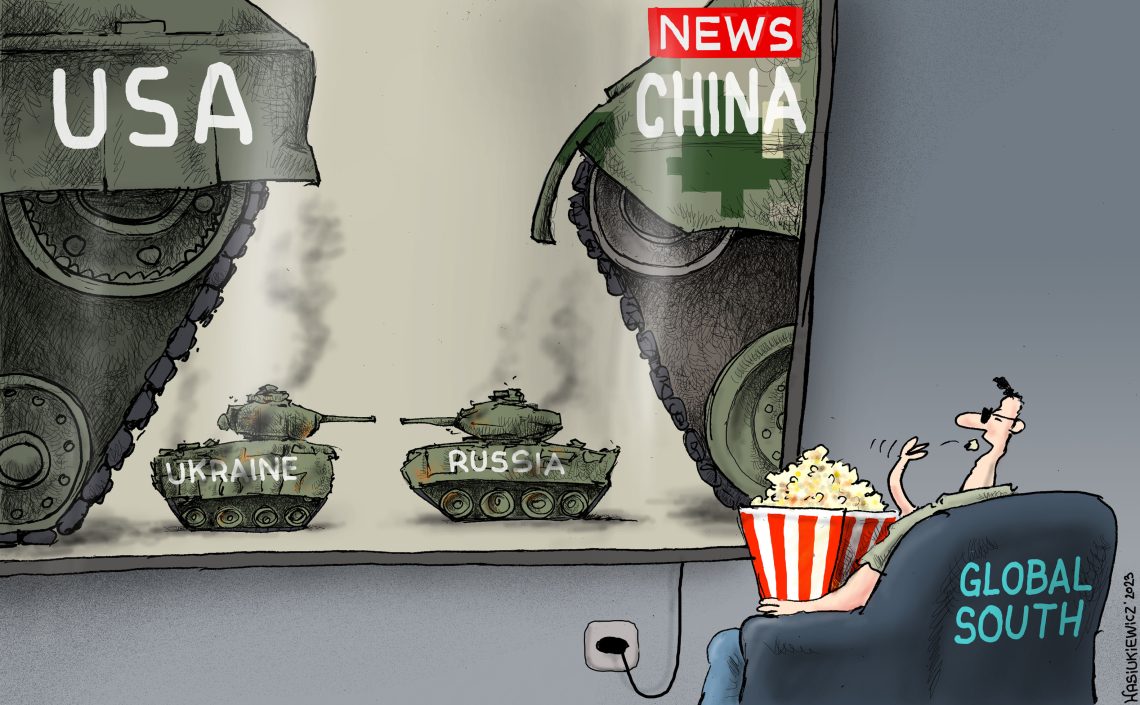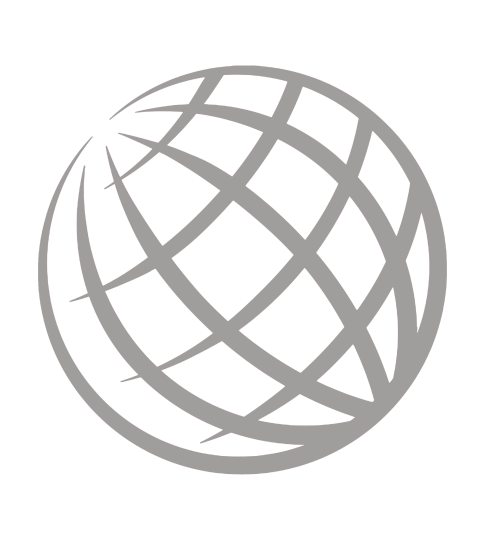Geopolitics of the 21st century
Challenges by the Global South will change the power game.

The first weekend of June brought another session of the top security summit in Asia, the Shangri-La Dialogue. The Chinese Minister of Defense Li Shangfu and the United States Secretary of Defense Lloyd Austin spoke there, playing the usual blame-dodging game and warning against the threat of another Cold War. Unfortunately, all signals are already here that we are in a cold war with a strong potential for escalation.
In Europe, the worst bloodletting since 1945 has been taking place between Russia and Ukraine. Neither side seems to know how to stop the hostilities or what the postwar arrangement should be like. The primary Western position is to try to weaken Russia so badly that it will never again dare to commit similar aggression.
This, however, is likely to prolong the war to the great detriment of the Ukrainian people.
At the beginning of the 20th century, the European powers that had shaped global politics and trade for the previous several centuries sleepwalked into World War I. That war ended European dominance and, a short 20 years later, led to World War II – another tragic, multicountry clash. That was prompted by the shortsighted, cruel and humiliating vae victis (woe to the conquered) dictates imposed by the victors on Germany, Austria-Hungary and the Ottoman Empire, which lost WWI. The first half of the 20th century saw an unprecedented loss of life, material destruction and human suffering, and the emergence of two totalitarian ideologies: communism and national socialism.
The four-power game is over
Can we sleepwalk in a full-fledged war again? One fervently hopes not, but tensions are mounting and we seem to suffer, especially in the West, from the dearth of astute, farsighted statesmanship. That same weakness led the European powers into WWI. This time around, however, the trigger is global.
The Asia Infrastructure Investment Bank (AIIB) regional economies of the Global South provide Beijing with big platforms for political influence.
Today’s primary conflict is between China and the U.S., not between Russia and Europe. China feels contained by the U.S. and its allies. It is frustrated as its traditional hegemonic claims are denied, and its naval access to the Pacific Ocean is restrained. Moreover, the de facto independence of Taiwan is a thorn in the side of the Middle Kingdom, an offense to its national pride.
But Beijing is going further. Its grand infrastructure-building program, the Belt and Road Initiative, aims not only to enhance trade on the Eurasian continent and the Indian Ocean area but also back China’s political, economic and military interests in these parts of the globe, including in Africa. With the infrastructure buildup and its “circular economy” concept to increase domestic efficiencies, experts see China readying a war economy.
Beijing is following through by challenging Washington’s leading position in international organizations or, when that does not work, creates parallel structures in politics and institutions. The Asia Infrastructure Investment Bank (AIIB) is a new version of the World Bank, while the Shanghai Cooperation Organisation and BRICS (regional economies of Brazil, Russia, India, China and South Africa) provide Beijing with big platforms for political influence.
Read more on global conflicts
The road to war between Russia and Ukraine
The threat of global conflict between the West, Russia and China is increasing
Redressing the European position
Apart from the already established hotspots in the South and East China Seas, Chinese President Xi Jinping and his team more recently opened two new fronts of potential confrontation: the Arctic, where the U.S. positions are challenged, and space.
Security comes from strength
Focused as we are on the Ukraine situation, we are in danger of losing sight of this historic global challenge.
As history shows, the policy of trying to weaken Russia in Ukraine as much and for as long as we can is dangerously shortsighted and, nearly certainly, counterproductive. Tragically, learning is not in the DNA of today’s politics. Like the attempts to cripple Germany three generations ago, emaciating Russia will not bring peace but revenge. Building Europe’s own strength is the only correct approach.
In the case of Ukraine, the road to averting a geopolitical tragedy is through helping Kyiv prevail on the battlefield. The specter of a military rout, and only that, can bring Russia soon enough to the negotiating table. As things are now, with the West tentatively ramping up its deliveries of effective military equipment and lacking any strategy, time might favor Russia.
For the fighting to truly end, an equitable peace is necessary. And for that, a comprehensive European security architecture, including Georgia and Ukraine in its framework, must be in place. There must also be a strategy for necessary future collaboration with Russia. And the foundation needed for such an architecture can only be credible European military deterrence.
Alternatively, the current focus on humiliating Russia will have two detrimental consequences. The vast country with all its resources will become even more dependent on China, strengthening Beijing’s global position. It will also nurture even stronger anti-Western sentiments.
A new global process
The genuinely new and most important challenge is materializing. It defies Europe’s past political and economic concepts and undermines Washington’s claim to global leadership. The increasingly self-confident Global South rejects the Western narrative of democracy vs. authoritarianism and charts its independent ways in the divided world.
This change breeds threats but, at the same time, creates new openings for Europe.
On the war’s first anniversary, Ukrainian President Volodymyr Zelenskiy declared that Ukraine had “united the world.” He could not have been more wrong. The cause of aiding Ukraine invigorated NATO and firmed the transatlantic partnership, but it has not worked this way globally. While strategists in the West still labor to maintain the pretense of defending a rule-based, U.S.-driven and protected world order, the efforts to bring the major powers of the developing world into the anti-Russian front have come in short.
The word order dying today is a relic of the four-power game between the U.S. and China in the front tier and Europe and Russia in the second tier. The naive claims in the West that the Global South has a moral duty to enlist in the conflict with Russia only enhances the conviction in New Delhi, Pretoria, Ankara, Brasilia and many other capitals to go their own way. Why should they get involved? The demographic and economic gravity changes have been profound.
As a result, we are witnessing the emergence of a new, multipolar international order with many players and divergent interests. This change breeds threats but, at the same time, creates new openings for Europe. Smaller countries are more vulnerable in such times, as international law tends to be ignored. Unfortunately, bigger states are already bullying smaller states if regional arrangements do not protect them.
The Southern world wants the freedom to create its governance systems, regional order and global positions without joining a so-called “systemic conflict.” Those countries are tired of being lectured by Western democracies and bullied into activities or arrangements which are not in their interest.


